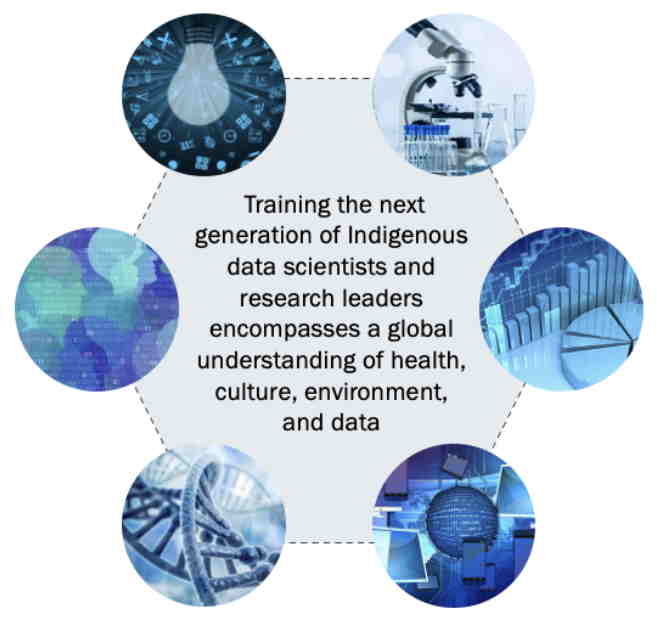Training the Next Generation of Indigenous Data Scientists
By Sabrina Imbler,
New York Times
| 06. 29. 2021
A new workshop explores the right of Indigenous people to govern the collection, ownership and use of their biological and cultural data.
When Krystal Tsosie introduces her genomics students to the concept of biocommercialism — the extraction of biological resources from Indigenous communities without benefit — she always uses the same example: the Human Genome Diversity Project.
The researchers who conceived of the project in the 1990s aimed to collect samples from human populations around the world, with particular emphasis on what they deemed “vanishing” Indigenous populations. “A lot of that information is now publicly available to advance the course of science,” said Ms. Tsosie, a genetics researcher at Vanderbilt University and a member of the Navajo Nation. “But who accesses these data sets?”
Ms. Tsosie, answering her own question, cited as examples Ancestry and 23andMe, two companies that commercialize and profit from Indigenous genomic data sourced without consent from people in Central and South America. In 2018, GlaxoSmithKline invested $300 million in 23andMe and paid for a four-year partnership enabling it to use 23andMe’s database of digital sequence information. In 2020, 23andMe licensed a drug compound it developed from its trove of consensually sourced genetic information.
Accordingly, Ms. Tsosie...
Related Articles
By David Jensen, California Stem Cell Report | 02.10.2026
Touchy issues involving accusations that California’s $12 billion gene and stem cell research agency is pushing aside “good science” in favor of new priorities and preferences will be aired again in late March at a public meeting in Sacramento.
The...
By Lauren Hammer Breslow and Vanessa Smith, Bill of Health | 01.28.2026
On Jan. 24, 2026, the New York Times reported that DNA sequences contributed by children and families to support a federal effort to understand adolescent brain development were later co-opted by other researchers and used to publish “race science”...
By Arthur Lazarus, MedPage Today | 01.23.2026
A growing body of contemporary research and reporting exposes how old ideas can find new life when repurposed within modern systems of medicine, technology, and public policy. Over the last decade, several trends have converged:
- The rise of polygenic scoring...
By Stephanie Pappas, LiveScience | 01.15.2026
Genetic variants believed to cause blindness in nearly everyone who carries them actually lead to vision loss less than 30% of the time, new research finds.
The study challenges the concept of Mendelian diseases, or diseases and disorders attributed to...




